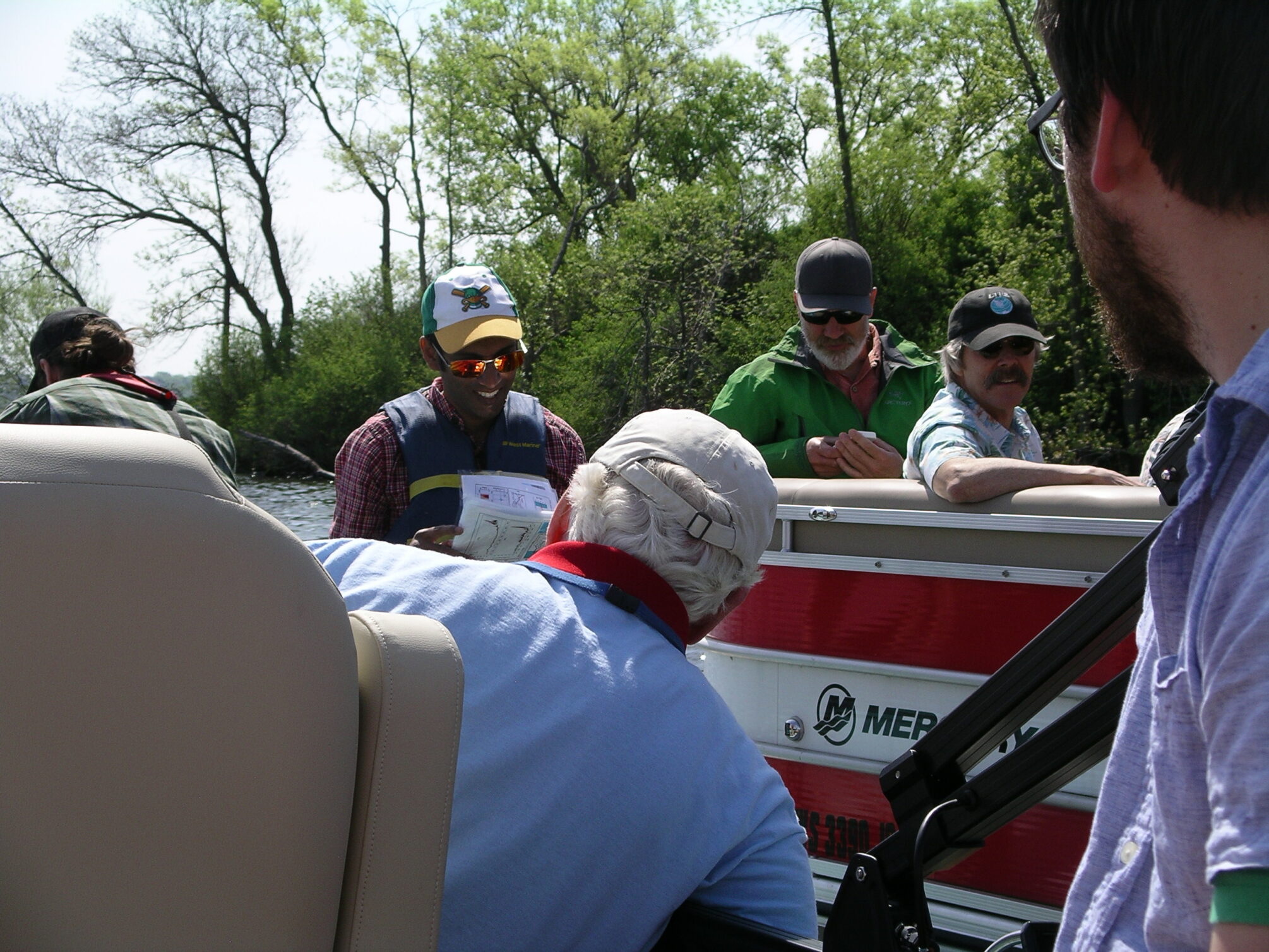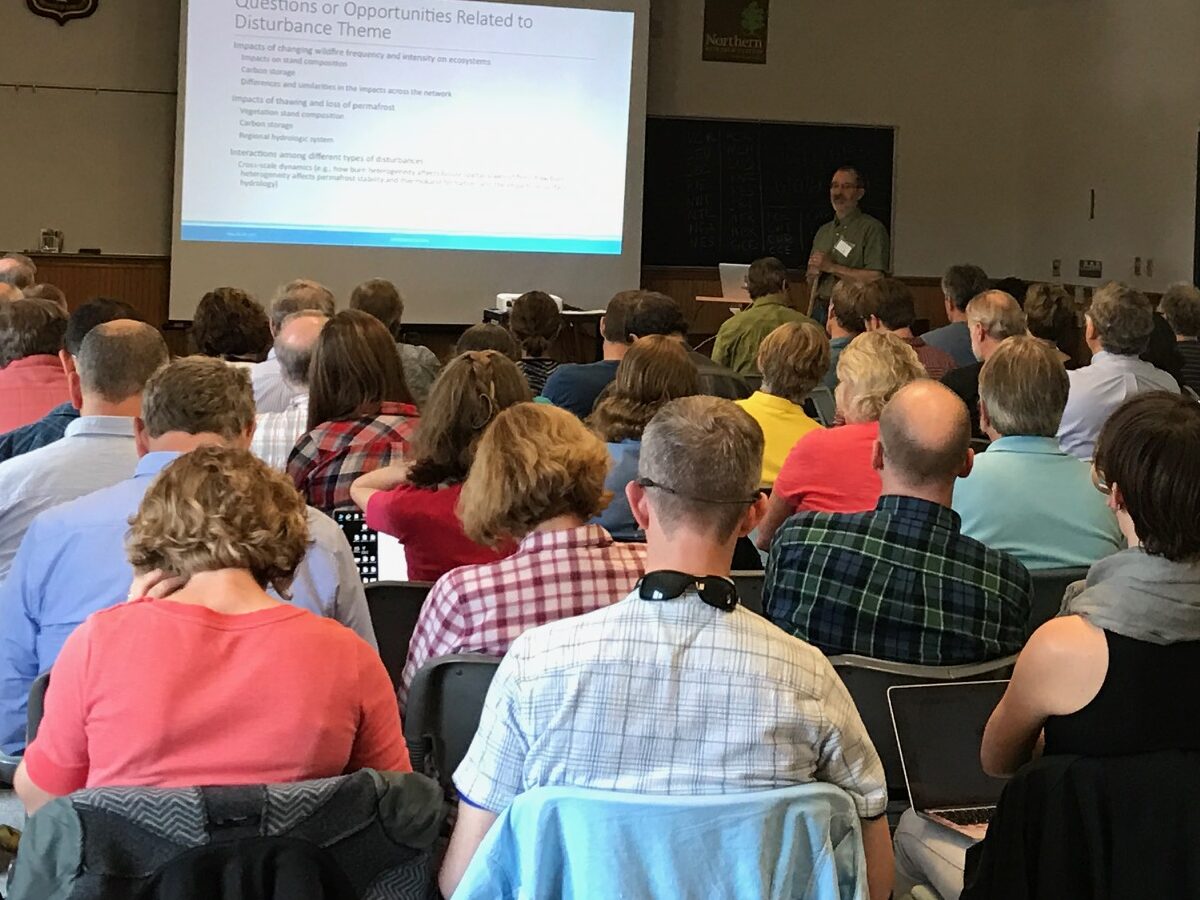Are you working on (or interested in) synthesizing research across LTERs? Do you think your work could benefit by engaging Site PIs and hearing directly what is being done in your research area at each site? Do you have an idea for a project or paper that could emerge from such a set of discussions? If your topic is chosen, are you prepared to further develop the idea?
The LTER Executive Board is seeking input regarding topics for future Science Council meetings.
What happens at the LTER Science Council Meeting?
Each year, the LTER Science Council meets for 2.5 days at one of the sites. The purpose of the meeting is to learn about one another’s sites, reflect on progress over the past year, conduct Network business, and identify potential synthesis priorities.
The agenda is packed with a site visit, business meetings, and site lightning talks, but it always includes 5-6 hours of breakout sessions for discussion and–with enough notice–the lightning talks can be aligned to particular themes.
This year, we are asking: Could your project benefit from being the focus of a Science Council Meeting?
What are the benefits of proposing a topic?
Successful proposers help design an agenda that surfaces the information and perspectives that can guide their synthesis. The LTER Network Office would cover travel costs for up to 2 individuals so that they can participate in discussions that involve investigators from all LTER sites.


What would we expect from proposers?
- Participation in designing the meeting to let you get the most out of it, including identifying a reasonable suite of information that investigators can deliver ahead of the meeting to facilitate discussion and progress (early Autumn timeframe).
- Attendance at the Science Council Meeting (May-June time frame)
- Follow up in the form of a paper, synthesis proposal, white paper or other guidance document.
Ideal type of topic proposal
The ideal topic would allow every site to contribute at some level (i.e. herbivory; not grazer exclusion experiments or extreme events; not wildfire)
How to apply?
Briefly describe (500 words maximum):
- the topic you are proposing,
- how it would benefit from the input of all sites,
- the person or people involved and their qualifications/interest in the topic,
- possible products
Submit to: lter-sc-proposals@lternet.edu by September 30, 2023. Proposals will be vetted and selected by the LTER Executive Board.
Additional background:
For the past several years, the meetings have been designed with a topical focus, most of which have led to multi-authored publications:
- 2023: Spatial Scaling (in-person at KBS)
- 2022: Social-Ecological Science (in-person at CAP)
- 2021: Social-Ecological Science (online)
- 2020: What’s next? (online)
- 2019: LTER Network Self-Study, in preparation for the Decadal Review (in-person at Luquillo)
- 2018: Organic Matter (in-person at NTL): Patterns and trends of organic matter processing and transport: Insights from the US long-term ecological research network
- 2017: Disturbance (in-person at HBR): Long-Term Ecological Research and Evolving Frameworks of Disturbance Ecology
- 2016: Populations (in-person at NCEAS; MCR posting): Ecosphere special collection
- 2015: Nutrients (in-person at HFR):
- 2014: Primary Production (in-person at KNZ)
Who comes to the meeting?
The annual Science Council Meeting typically includes the following participants:
- One Lead Principal Investigator from each site
- One additional participant from each site – typically the “#2” is either a specialist in the focal area or an individual who may be preparing for a role in site leadership
- One Executive Board Representative from each of the representative committees (IM, EOC, DEIJ, Grad (new in 2023))
- 2-3 staff members from the LNO
- 1-2 staff members from EDI
- NSF representative(s)







